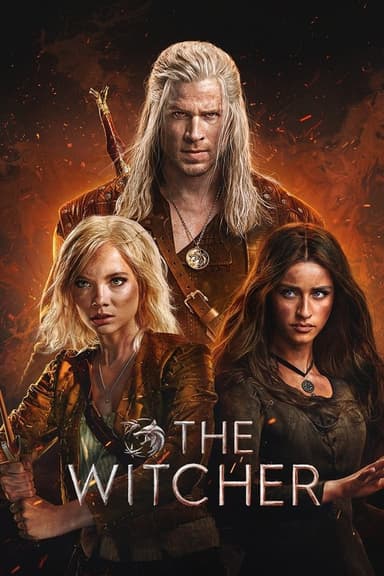
Frank Herbert's Children of Dune
2003 • Drama, Sci-Fi & Fantasy • TV-14
Frank Herbert's Children of Dune is a three-part miniseries written by John Harrison and directed by Greg Yaitanes, based on Frank Herbert's novels Dune Messiah and Children of Dune. First broadcast in the United States on March 16, 2003, Children of Dune is the sequel to the 2000 miniseries Frank Herbert's Dune and produced by the Sci Fi Channel. As of 2004, this miniseries and its predecessor were two of the three highest-rated programs ever to be broadcast on the Sci-Fi Channel.
Why you should read the novels
While the TV adaptation offers an entertaining glimpse into Frank Herbert's universe, only the novels fully immerse readers in the depth and complexity of the Dune saga. The subtle, intricate inner conflicts of characters like Paul Atreides, Alia, and Leto II are explored in ways the screen simply can't achieve. Exploring Herbert's original works offers not only a richer plot and vivid world-building but also delves into the philosophical and moral questions at the heart of the series.
Frank Herbert's prose captures the psychological torment and transformation of its protagonists far more intimately than any visual medium can. The books allow readers to journey through the sands of Arrakis, experiencing firsthand the power struggles and evolution that define Dune’s legacy. Each page provides nuanced insight into the political, ecological, and religious complexities shaping this universe.
Choosing to read "Dune Messiah" and "Children of Dune" means engaging with Herbert's original vision and thematic brilliance. While the television series condenses or alters material for time and spectacle, the books offer a complete, thoughtful, and challenging exploration that endures well beyond the closing credits.
Adaptation differences
One major difference between 'Frank Herbert's Children of Dune' and the novels is the compression of timelines and events. The miniseries merges the plots of 'Dune Messiah' and 'Children of Dune,' resulting in a much faster narrative pace. Significant political and philosophical deliberations are streamlined or omitted to fit the limited episodic format. As a result, the show's depiction of Leto II’s transformation and Paul’s legacy lacks the gradual buildup and intricate detail present in the books.
The adaptation also simplifies or alters several character arcs. For instance, Alia’s descent into madness and possession by the Baron is more visually dramatized, sometimes at the cost of the subtle psychological nuances that Herbert weaves into her internal struggles. Similarly, secondary characters like Scytale and Farad’n have reduced or altered roles, shifting the focus toward primary storylines and set-piece moments.
Additionally, important subplots and themes receive less emphasis or are omitted entirely. Herbert’s novels dedicate significant attention to the philosophy of governance, the perils of prescience, and the complex relationships between religion and power. The miniseries, focused on external conflict and spectacle, frequently skims over these introspective elements, leading to a more straightforward, action-driven experience.
Finally, certain narrative outcomes and character motivations are changed to provide more dramatic impact or clearer on-screen resolution. While the visual storytelling adds grandeur and immediacy, it often cannot match the depth and ambiguity that make the source material so compelling. The adaptation is a striking visualization but lacks the intellectual and emotional resonance of Herbert’s original prose.
Frank Herbert's Children of Dune inspired from
Children of Dune
by Frank Herbert
Dune Messiah
by Frank Herbert






